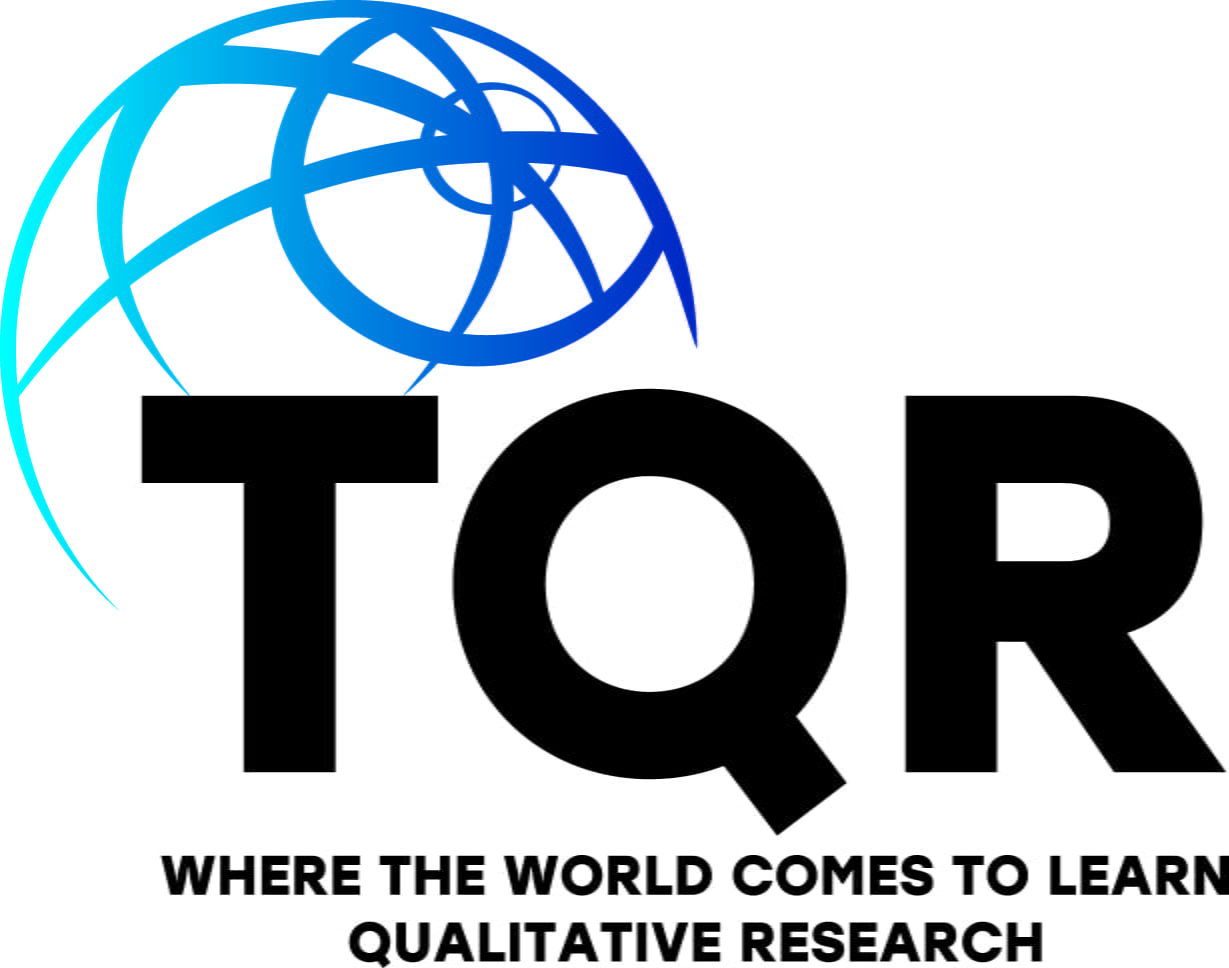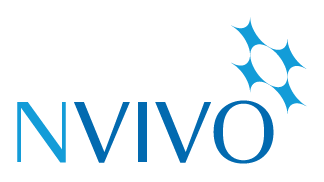Sponsored by
“When Qualitative Researchers Care”
January 12-14, 2017
Schedule At-A-Glance – Presenter Breakout Schedule – Presentation Summaries – Parking Pass – Editorial Board Meeting
As qualitative researchers, we explore, we discover, we describe, we interpret, we analyze, we synthesize, and we report. We perform these actions as we conceive, conduct, and compose our inquiries, but we also care for the people who share their lives with us. We care for their struggles, their dreams, and successes. We try to help their voices to be heard with the hopes of not only enriching the global narrative with the inclusion of these local experiences, but to also possibly help improve the conditions of these resident experts.
When we as qualitative researchers care, we embrace the potential to change the worlds and people we study. The choices we make as to who we study and how we go about designing and delivering these studies can be life changing for participants in the research, including ourselves, as well as anyone who comes in contact with our accounts from the field. This choice-making responsibility reflects an ethical imperative we as qualitative researchers must embrace so we actively reflect on what we do, why we do it, and with whom we do it.
Whether or not we overtly characterize our purposes as action, participatory, appreciative, critical, emancipatory, provocative, or social justice, our work can embody these qualities. People who participate in qualitative research can feel better and empowered. They can change products, organizations, communities, families, countries, and us along with themselves. What happens with what we produce as qualitative researchers, what others do with what we do, what anticipated and unanticipated consequences come from what we report makes us take special care when reflecting on what implications our work can have for the world including what might have been.
At The Qualitative Report Eighth Annual Conference, we want you to share your stories of how you care as qualitative researchers for your work and for those with whom you work to produce the inquiries you do. How do you conduct your studies such that you design for making a difference? How do you embrace the relational in your research? What of your studies have helped to produce change and why do you think that outcome occurred? We want to hear these narratives in your proposed papers, panels, and workshops so we all can learn what happens when qualitative researchers care.Please submit your presentation ideas and join us next January at Nova Southeastern University in Fort Lauderdale, Florida USA for TQR2017! We will be accepting submissions from February 1st to April 30th, 2016. Submit Presentation Abstract
Keynote Speaker: Dr. Carolyn Ellis
Carolyn Ellis is distinguished university professor of communication and sociology at the University of South Florida (USF). She has established an international reputation for her contributions to the narrative study of human life. Having published extensively in qualitative methods, storytelling, emotions, and loss and trauma, she integrates ethnographic, literary, and evocative writing in short stories, research articles, and documentaries to portray and make sense of lived experience in cultural context. She is best known as an originator and developer of autoethnography, a reflexive approach to research, writing, and storytelling that connects the autobiographical and personal to the cultural, social, and political. Seeking to do research that has the possibility of improving human lives and enhancing social justice, she currently is engaged with Holocaust survivors in collaborative and compassionate interviews guided by a relational ethics of care.
Dr. Ellis has published five monographs, six edited books, and more than 150 articles, chapters, and review essays. She has edited two book series and presented keynote addresses and workshops in sixteen countries. Her most recent book is Evocative Autoethnography: Writing Lives and Telling Stories (with Arthur Bochner). Her numerous national and international lifetime career, scholarly, mentoring and book and article awards include the Charles H. Woolbert Research Award and the Distinguished Scholar Award, both from the National Communication Association (NCA), The Legacy Lifetime Award and best book and article awards from NCA’s Ethnography Division, a Lifetime Achievement Award in Qualitative Inquiry and a best book award from the International Center for Qualitative Inquiry at the University of Illinois, and numerous research, teaching, and leadership awards from USF.
Doing Compassionate Research With Heart: Collaborative Inquiry with a Holocaust Survivor
I have been collaborating with Holocaust survivors for the last seven years, in particular a survivor of the Warsaw Ghetto, Jerry Rawicki. This presentation will employ film clips of our interactions in interviews and classes along with a short documentary about our trip to Treblinka (a death camp) to demonstrate the research relationship that has formed between us. Using an approach I have developed called compassionate interviewing and storytelling, Jerry and I work together to understand his experiences during and after the Holocaust and how this research orientation might work in practice. In this collaboration, a researcher and participant listen deeply to, speak responsibly with, feel passionately for, share vulnerably with, and connect relationally and ethically to each other with care. We write and tell stories empathetically and respectfully, focusing on participants’ wellbeing and the possibility of renewal and purpose in life. This approach adds a relational and emotional dimension to research on trauma, such as the Holocaust, that enables us to learn from our interaction with others as well as from what our participants say. I offer this method as an option to consider, especially when studying sensitive issues such as loss, trauma, and end-of-life care.
Keynote Speaker: Dr. Yvonna S. Lincoln
Yvonna S. Lincoln is Ruth Harrington Chair of Educational Leadership and Distinguished Professor of Higher Education at Texas A&M University, where she also serves as Program Chair for the higher education program area and Associate Department Head. She is the co-editor, with Norman K. Denzin, of the journal Qualitative Inquiry, and of the 1st, 2nd, 3rd 4th, and the brand new 5th edition of the Sage Handbook of Qualitative Inquiry, and the Handbook of Critical and Indigenous Methodologies. As well, she is the co-author, editor or co-editor of more than a half dozen other books and volumes. She has served as the President of the Association for the Study of Higher Education and the American Evaluation Association, and as the Vice President for Division J (Postsecondary Education) for the American Educational Research Association. She has been awarded the Sidney Suslow Award for contributions to evaluation theory (Association for Institutional Research), the Howard Bowen Award for lifelong professional contributions to higher education (Association for the Study of Higher Education), the Lifetime Achievement Award from the International Congress on Qualitative Inquiry, and a Presidential Citation from the American Educational Research Association. She is the author or co-author of more than 100 chapters and journal articles on aspects of higher education or qualitative research methods and methodologies. Her research interests include development of qualitative methods and methodologies, the status and future of research libraries, and the impact of the assemblage of neoliberalism, globalization and corporatization on western higher education.
When Caring Isn’t Enough
Qualitative researchers everywhere understand that qualitative research tends to be both more immediate and more intimate than statistical approaches, which can demonstrate some trends, but rarely answer the questions of “why” or how such research affects target populations in lived experience. Consequently, qualitative inquiries are frequently viewed as both more caring and more humanly “connected.” But caring, particularly in the contemporary political climate, may not be enough. Caring itself—whether for one’s participants or for oneself—provides a strong rationale for engaging qualitatively, but need to be taken further. This work suggests _____ ways in which caring has to be extended: toward ensuring that all participants understand each other’s positions; toward communicating in everyday, or “natural,” language, to extend understanding; toward providing platforms for developing actionable changes; toward providing tactical and strategic planning aid in enacting changes; toward ensuring that results are not presented in such a manner as to make then susceptible to being used against specific groups; and toward strong advocacy for sharing the results of inquiries, particularly with respect to getting those results and recommendations to appropriate policy personnel.
Conference Registration
Presenter Registration
General Registration
Conference Registration for TQR 2017 is $150. The cost includes breakfast and lunch each day (Thursday through Saturday). Based on feedback from last years conference the following changes will be implemented:
- Breakfast and lunch each day. (Even if we start later in the day, both meals will provided on that Thursday)
- Increased interaction time
- Moderators will be brought back in to each room so timing is more concise
- Closing of the conference will involve a workshop from Dr. Chenail that will include time for post reflection
Hotel Information
Courtyard Fort Lauderdale Plantation
7780 SW 6th Street, Plantation, FL 33324-3342
Book Online Here (Discounted Rooms Sold Out)
The Hotel’s room rates are subject to applicable state and local taxes (currently 11 %) in effect at the time of check out.
Start Date – End Date – Room Type – Queen-Queen
1/11/2017 – 1/14/2017
Standard $126.00
Special Concessions: Hotel will provide Nova Southeastern with the following special concessions:
1. Group rate to include breakfast for maximum occupancy of 2 per room. Breakfast will be served by the Bistro Café. The guest will have a choice of one of the following options below:
- Option A – Choice of 1 breakfast sandwich and 1 beverage (water, juice, coffee, or tea)
- Option B – Choice of 2 items from the Fast & Fresh menu and 1 beverage (water, juice, coffee, or tea)
2. Group rate to include shuttle service to the following areas below.
- To and from the Fort Lauderdale International Airport
- To and from Nova Southeastern University
Please have the guests in your group directly call Marriott Reservations at 1 (800) 321-2211 or (954) 475-1100 on or before Friday, December 16th, 2016, (the “Cutoff Date”) to make their sleeping room reservations. Please advise guests to identify themselves as part of the Nova Southeastern University group staying at the Courtyard Fort Lauderdale Plantation, located at 7780 SW 6th Street, Plantation, FL 33324-3342.Reservations for all guests must be received on or before Friday, December 16th, 2016 (The Cutoff Date). After the Cutoff Date, the hotel will release any unreserved rooms.


